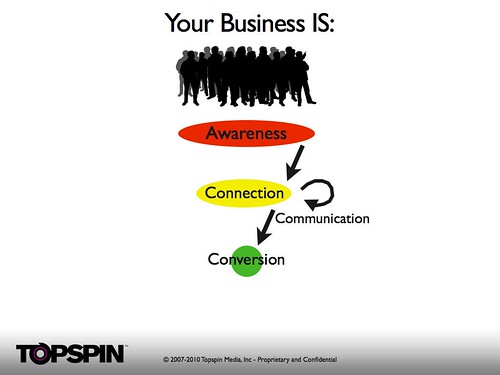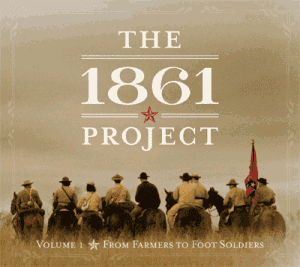Recently I heard a quote attributed to a music business executive that went something like this: “The new model doesn’t exist…”
Now I don’t know for sure if the exec actually said that. I think it’s incredibly easy to take a quote out of context. But I’d love to give that executive the benefit of the doubt. Mostly because I can’t honestly believe that it was framed that way by someone in the business.
That being said…it got me to thinking. Just what exactly would qualify as success or viability in the “new model” by the present day music business establishment?
Because from where I sit the new model does exist. Furthermore it seems to be thriving. It has its own set of challenges for sure, but there’s plenty of evidence to suggest that there is viable forward momentum and traction.
Test Cases
In our workshops we spend a lot of case study time with Julia Nunes, the college dorm room musical ingenue who took cover songs on an ukulele to millions of viewers on YouTube. She then managed to parlay that into opening for Ben Folds and playing Bonnaroo two years in succession. This past June she raised upwards of $77000 via her own “Julia Nunes Would Be Nothing Without Me” campaign on Kickstarter for her indie CD project. That’s a monetary figure that most new acts would kill for in a recording & promotional budget. She has a confident vulnerability that deeply resonates with her audience and even with folks who don’t even know her that well.
It exists with Corey Smith, a Georgia based singer who built an audience around live touring and giving away music which resulted in a $2 million/year operation. He now has strategic partners that help with distribution, marketing & promotion - but still no partnership with any major label. He produces & sells alternative country music that is outside of the strict confines of the mainstream country music industry and makes a very comfortable living doing so. He also happens to have a really great partner in his genius manager, Marty Winsch. Read more at TechDirt or listen to his podcast on CDBaby.
And then of course, there’s the current poster child for all of this - The Civil Wars. The indie music story of the year. A duo built around great songwriting, a spiritual sympatico between the principals Joy Williams and John Paul White, and a savvy, compassionate management team made up of Nate & Travis Yetton. They’d be the first to admit they got a fair bit of luck - but once they had it - they knew how to capitalize on their opportunities. They are a pioneering case on how to marry new technology with tried and true “old school” music business methods such as touring, music placement and conventional publicity and press. Also to their credit and ever evolving vision, they’ve elected to stay independent for now.
Songwriters Only
And there are even new paradigms for folks who consider themselves “only” songwriters.
Two years ago one of my heroes, Seth Godin, came to Nashville for the Country Radio Seminar and said that perhaps the days of the pure songwriter may be done. I disagree.
The solution I think is innovative and strategic partnerships with other kinds of artists & content creators and providers. Here are two specific examples of songwriters finding their way forward in the new world order in projects that are songwriter driven.
The 1861 Project is a collection of new original songs inspired by the people who fought and lived through the U.S. Civil War – a contemporary take on Civil War music. Bill Flanagan of CBS Sunday Morning says of the project:
“Like all great music, it proves how human emotions transcend specific time and circumstances.”
Peter Cronin, the project’s creative director talks a little bit about what made the project work:
“Our ace publicist (that’s me!) managed to stir up serious press coverage on the national, regional and local levels. Paul Schatkin’s pre-release marketing efforts via social media generated considerable buzz and built sufficient fan interest…”
“…we found one way to get a grip on all of it – get in, get your hands a little dirty and be prepared to put on a new hat if need be.”
Amanda Havard’s “Survivors” project is really about a series of books. She is an author. But she is also a songwriter. Together with music producer and songwriting partner, Deanna Walker, she has written a collection of songs that complement the books. Together they own all the content. And the name of the game these days, ladies and gentlemen is content, content, content…This is “Pretty Girl”, a song performed by Chris Mann (a member of The Warblers on Glee).
According to Derek Baird, “What makes this series really interesting is the way that Havard has woven social media into both her own creative process as well as the reader’s experience. She has an exciting and new vision for YA Fiction that incorporates all types of media to share the story of The Survivors.”
Disconnect
There’s still a fair amount of discussion about what should be done by majors in order to survive this change. Like in this article entitled “Broken Records.” There are also posts and commentary making a case that indies are inferior to majors. Such as this article by a mainstream industry insider about how indies should stop complaining about the low pay rates on Spotify when compared to their more illustrious cousins on major labels. According to the original poster, the majors bring “better quality” and “higher demand” to the table and therefore are thoroughly justified in getting higher pay rates. What?!!
So there still seems to be a huge disconnect between these two worlds.
It almost seems like there is a certain reluctance to adopt or embrace the new grassroots style paradigms because it doesn’t fit some archane, outdated business model. Furthermore it feels like new models are being held to impossibly unattainable standards - ones that even the major labels don’t hold themselves to anymore.
Let’s be clear: things are very much in the messy, primordial soup phase of things in the new world order. But let us remember that for a time there even radio didn’t want to initially pay PROs for the work of songwriters. So much so broadcasters formed BMI so that they wouldn’t have to negotiate with ASCAP whom they thought treated them unfairly. Sound familiar?
Look I’m not here to beat up on the major labels. In fact I’m grateful for my musical evolution which for the most part was informed by the majors. And the majors certainly bring “bank” to the equation.
But I think it is time to temper expectations and start learning about our customers on our own. Outside of focus groups and within the setting of real world experiences. We need to go back to relating directly to the music fan and figuring out how to bring emotional capital and most importantly emotional connection back to the musical experience. Even with technology. I believe the beginning of the erosion of the old school music business model began when the industry became obsessed with selling pieces of plastic more than nurturing the emotional nature of music.
Courage

Courtesy of Ian Rogers, Topspin Media
In our Rock Your Net workshops we spend a lot of time educating artists and songwriters on how to convert from the old model to a new way of doing things. There is a lot of nervousness and trepidation. Some of this is understandable for there is a great deal of uncertainty going forward. But some of it is unnecessary fear and trauma from certain sources within the industry perpetuating a myth that all consumers want to do is steal. And that giving away free music in order to gain fans and build awareness devalues it.
There is nothing more crippling than believing your potential customer base cannot be trusted. In fact, it is downright deadly.
To quote Tim O’Reilly, “Obscurity is a far greater threat to authors and creative artists than piracy”
It is time to re-learn and recalibrate what we want as artists, songwriters and content creators in the new world order of the music business. We may find that our journey will be wrought with all kinds of disappointment and pitfalls, but there is plenty of evidence in the examples above to suggest that there is also great opportunity.
We just need the courage to seize it.
This article received valuable insight & contributions from Alex Curtis of The Creators Freedom Project & Michael Lovett of Phat Magnet Media.
